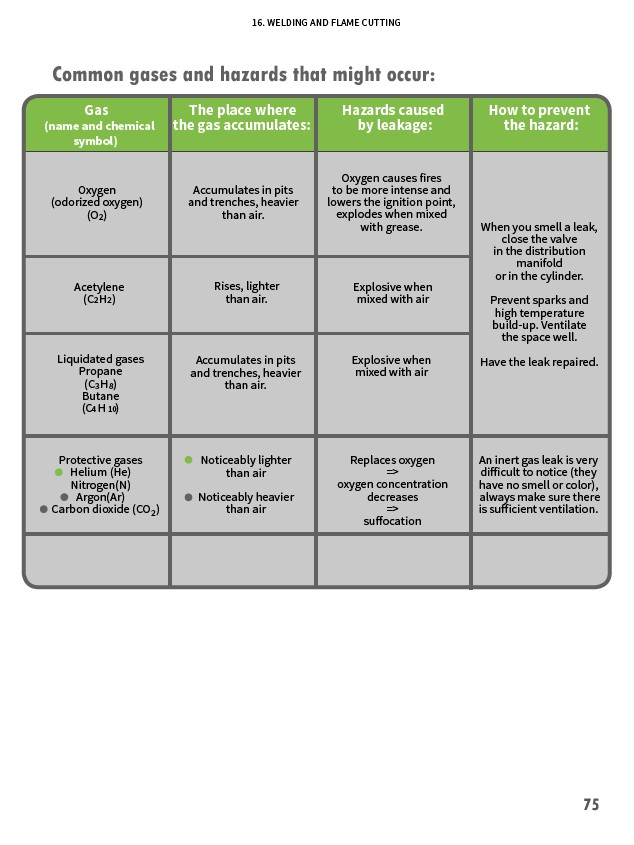
Common gases and hazards that might occur:
Gas The place where Hazards caused How to prevent
(name and chemical the gas accumulates: by leakage: the hazard:
symbol)
Oxygen
(odorized oxygen)
(O )
Acetylene
(C H )
Liquidated gases
Propane
(C H )
Butane
(C H )
Protective gases
Helium (He)
Nitrogen(N)
Argon(Ar)
Carbon dioxide (CO )
Accumulates in pits
and trenches, heavier
than air.
Rises, lighter
than air.
Accumulates in pits
and trenches, heavier
than air.
Noticeably lighter
than air
Noticeably heavier
than air
Oxygen causes fires
to be more intense and
lowers the ignition point,
explodes when mixed
with grease.
Explosive when
mixed with air
Explosive when
mixed with air
Replaces oxygen
=>
oxygen concentration
decreases
=>
suffocation
When you smell a leak,
close the valve
in the distribution
manifold
or in the cylinder.
Prevent sparks and
high temperature
build-up. Ventilate
the space well.
Have the leak repaired.
An inert gas leak is very
difficult to notice (they
have no smell or color),
always make sure there
is sufficient ventilation.
2
2 2
3 8
4 10
16. WELDING AND FLAME CUTTING
2
75